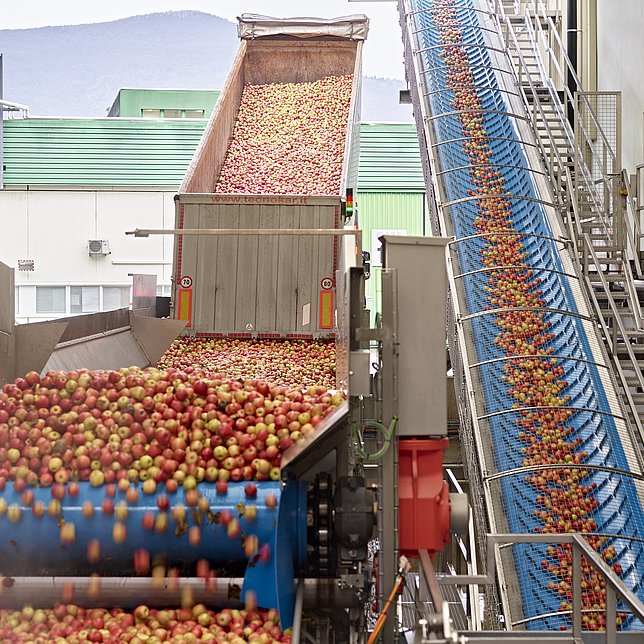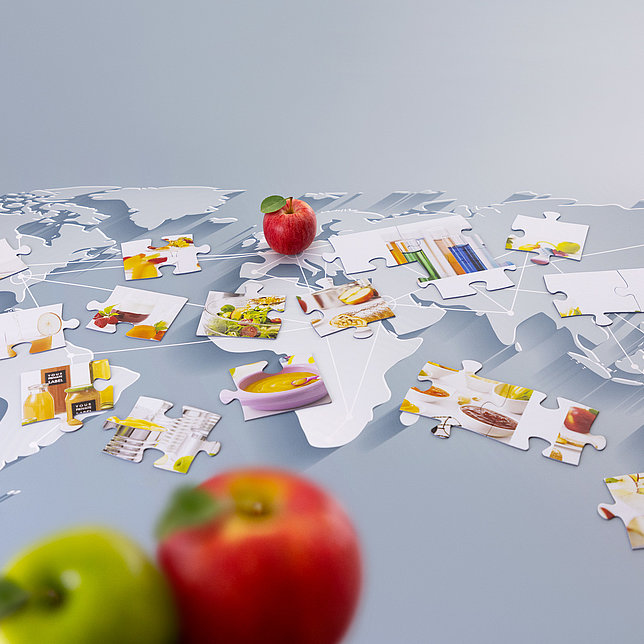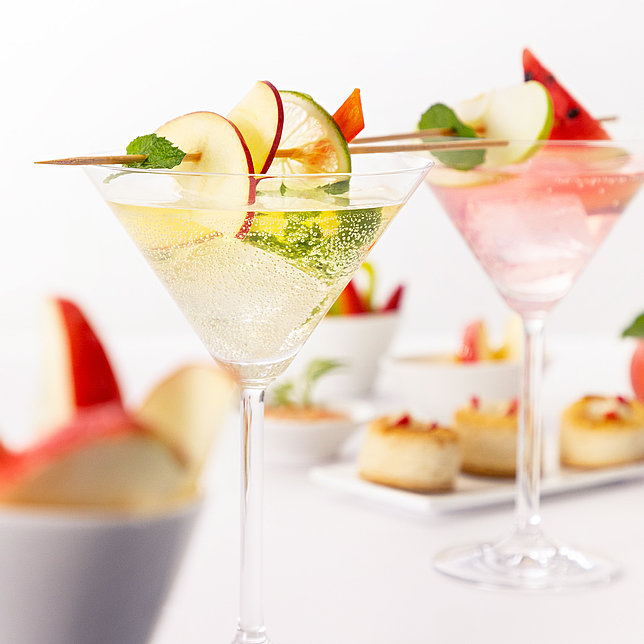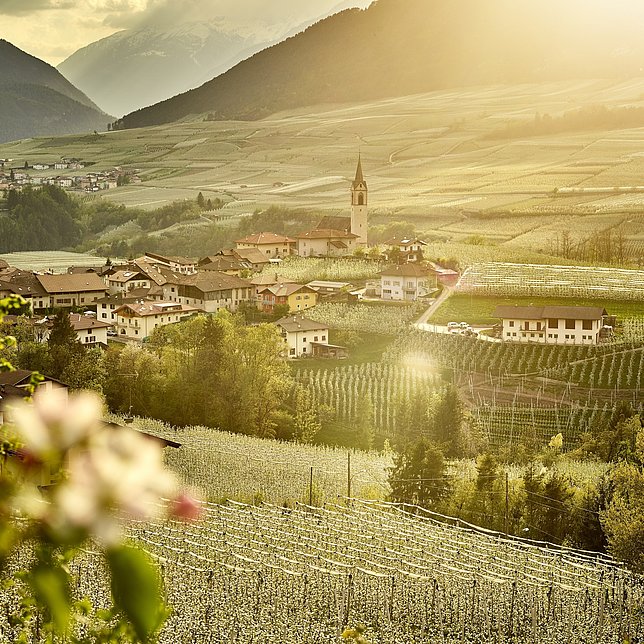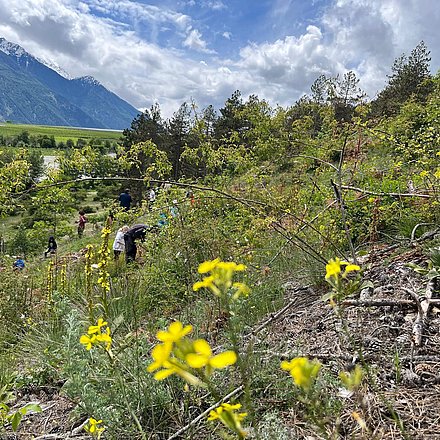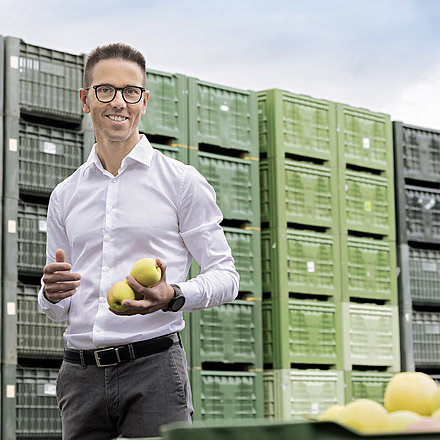Bees
Cooperation is key
There is probably no better example to show the relationship and interaction between bees and farmers: The blossoms are an important source of food for the bees after the winter. And for apple farmers, the bees are indispensable helpers in pollination. No wonder that there is a special emphasis on cooperation.
Spring is an important time for South Tyrolean and Trentino fruit growers. Successful pollination in the flowering season is important for the success of the harvest, not only in terms of quantity, but also in terms of the quality of the fruit. About two bee colonies are needed per hectare of orchard (i.e. a total of about 40,000 to 45,000 bees) to ensure that pollination is successful over the whole area. 15,000 bee colonies are in the orchards and vineyards all year round; another 7,000 are placed in the orchards by beekeepers from other parts of the country during the flowering season. But it is not only the farmer who benefits: For the bees, the orchards are important as a source of food, as the apple trees give them plenty of nectar and pollen.
Therefore, bees are given a lot of attention in many places. Producers provide a place in the orchards where beekeepers can park their hives. Compliance with the regulations in the cultivation guidelines, which serve to protect the bees, is important: for example, treatments with plant protection products are only carried out in the morning and evening hours when there is no bee flight.
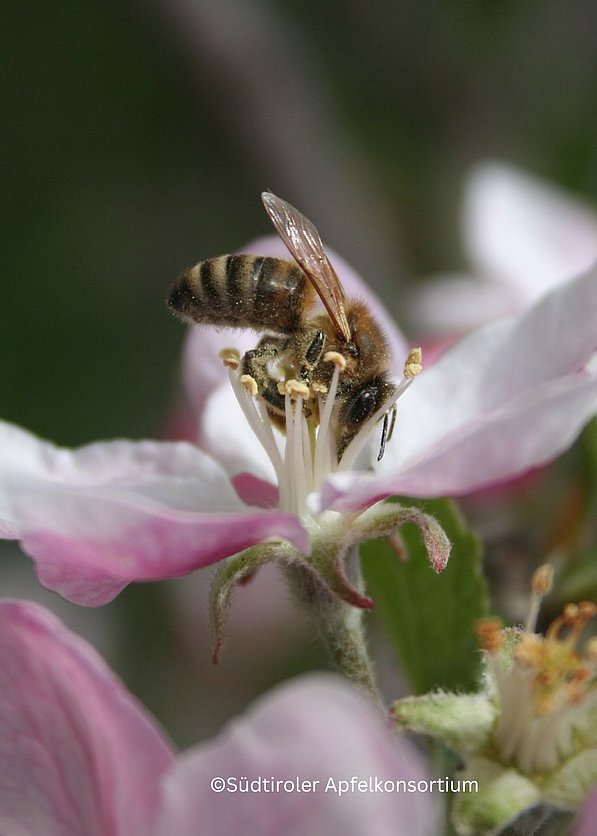
In addition, there are a number of concrete bee-friendly initiatives and projects:
- At the bee pasture on the Latscher Sonnenberg, numerous measures for bee protection have been implemented since 2020: The bee-friendly planting with forage or forage crops provides bees with sufficient food and a near-natural habitat very close to the forest. Due to the different flowering phases, the bee pasture provides rich food for the bees at different times - even in the food-poor period between apple blossom and the relocation of the hives to higher altitudes. The partners of the initiative are the producer organisation VIP, the Autonomous Province of Bolzano, the Forestry Inspectorate of Schlanders, the Beekeepers' Association of Latsch and the landowner of the area.
- The Advisory Council for fruit and wine growing has been providing important recommendations for bee and insect protection in circulars and field inspections for years.
- VIP pays pollination premiums to local beekeeper groups.
- In addition, VIP has also been supporting queen breeding for 25 years with a financial contribution.
- Plant protection products are applied with low-drift injector nozzles - this was already largely common practice in South Tyrol's fruit industry before it became a legal requirement in 2019.
- The VIP beekeepers' group, founded in 2021, consists of beekeepers, fruit growers and VIP representatives. In the working group, concrete agricultural practices are discussed and practical solutions are worked out to ensure good coexistence between beekeeping and apple farming.
Fruit growing and bee protection belong together. The best proof of this are the many fruit growers who practice beekeeping themselves.


